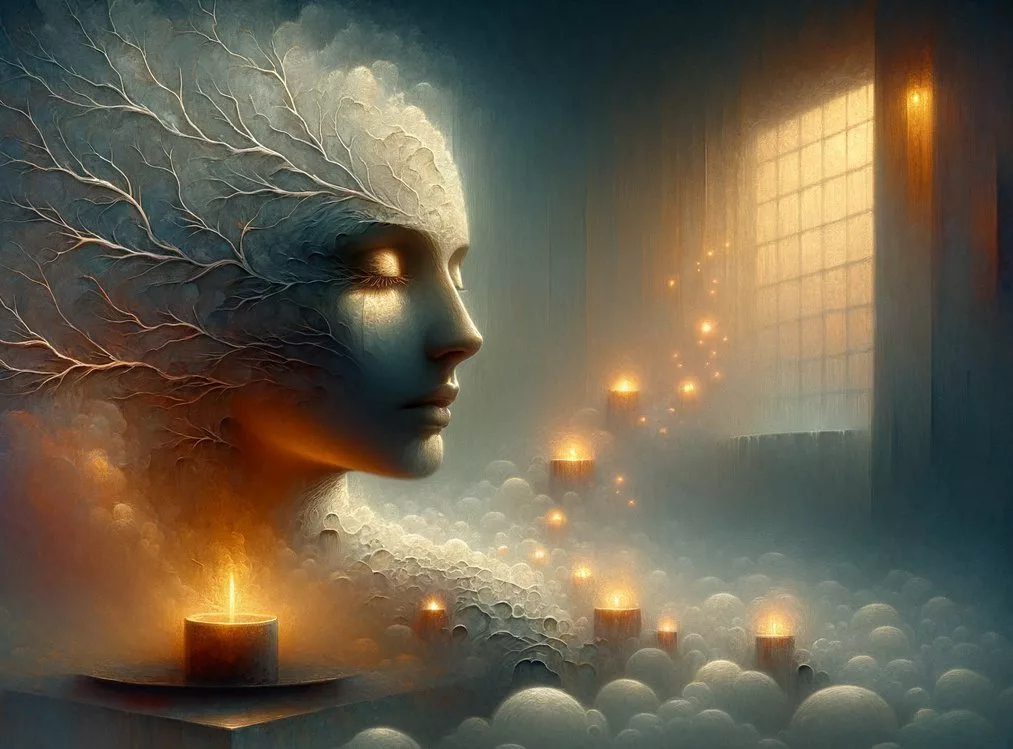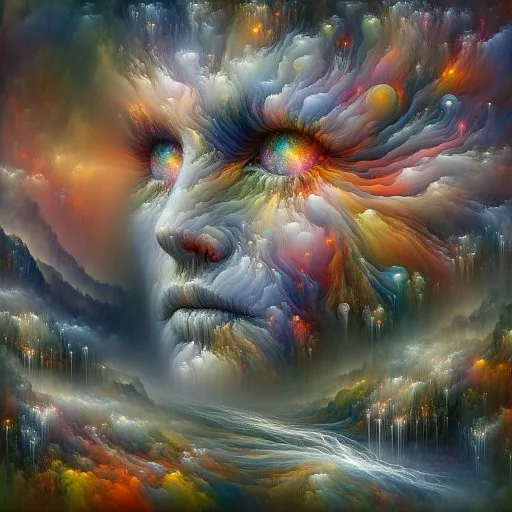A face watches me: it is motionless, but its eyes flicker like flames courted by the wind. Every color is silent, fading, falling asleep, and the air melts the contours, creates unity, and tears down the forking path.
Mist is the essence I seek when I sink into thoughts. Not the light, not the sun, but only faint fuzzy glows bumping into each other in the war of reality. What better gateway to the perception of the deep? Even a stream pauses, swaying up and down; at times, it even seems to climb up the mountain as weary droplets settle on the lower leaves.
Please don’t give me the light. I don’t want it. Please grant me the mist, with its courtesan-like motions, enveloping silence, and song that intoxicates like wine and dissolves so that too-biting hands may never encircle its ethereal flanks.
A face watches me: it is motionless, but its eyes shine like silvery winter branches mottled with iridescent light motions.
Deposited for legal protection with Patamu: certificate
Video
A brief note on the influence of fog on poetry
Fog has always inspired poets throughout history, evoking a sense of mystery and melancholy that ignites their creativity. Many famous poets have used fog as a central theme in their works, capturing its ethereal beauty and eerie presence in their verses. One of the most famous poems about fog is Carl Sandburg’s “The Fog,” where he describes it as coming on “little cat feet.”

Another notable poet who found inspiration in fog is Robert Frost, who often used it as a metaphor for life’s uncertainties and challenges in poems such as “The Road Not Taken.” Emily Dickinson also explored the theme of fog in her poem “Fog, ” describing it as “the smallest cloud” that obscures clarity. Fog continues to be an inspirational muse for poets worldwide, allowing them to explore themes of ambiguity, introspection, and the unknown in their works.
If you like the poetic prose, you can always donate to support my activity! One coffee is enough!


